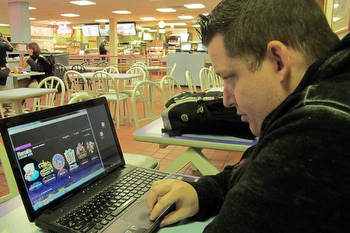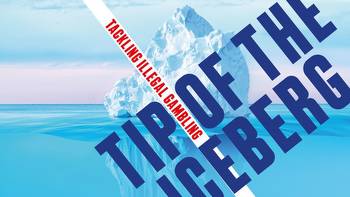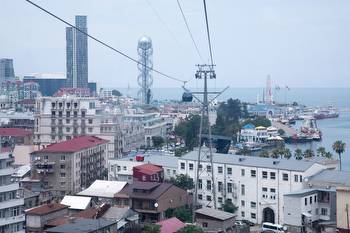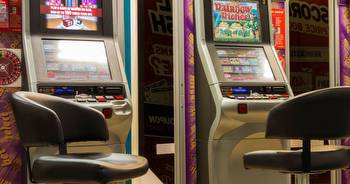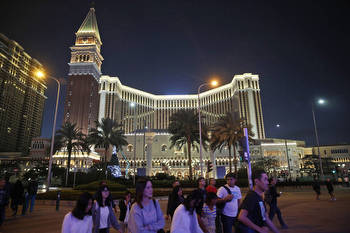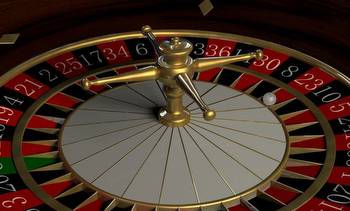Gambling Board CEO urges industry to embrace technology to withstand future disruption

The Gauteng gambling industry appears to have made a swift recovery from the devastating effects of Covid-19 and its subsequent hard lockdown, but the pandemic showed the need for the industry to embrace technology and become fully automated to withstand future disruption.
This is according to Gauteng Gambling Board chief executive Steven Ngubeni, who spoke of the challenges of the past year, which also include clamping down on illegal gambling to maximise revenue collection.
During the hard lockdown, the gambling industry saw its revenue collapse by 90% as casinos, Limited Payout Machines and Bingos were closed to the public. The only revenue was coming from online sports betting, which is the fastest growing area that the Gambling Board regulates.
Ngubeni notes the resilience of Gauteng gambling industry, which he says did not retrench in the early part of the lockdown, but instead used reduced salaries and assistance such as Temporary Employment Relief Scheme (TERS) to maintain staff and only retrenched a small number towards the end of the lockdown. More remarkable, Ngubeni says, no license holder closed operations as a result of Covid-19.
“Covid-19 has shown us that our regulatory framework, policy and laws were nothing but a limitation for business [to] survive disruptions.” says Ngubeni, who also notes that the industry is “not responsive to innovation.”
Ngubeni says the best way to overcome the challenge posed by Covid-19 is to legalise online interactive gaming. Currently, the only way to participate in a casino game, one needs to physically go to a casino, which sounds archaic for 2021. Any casino games that are advertised online are, technically speaking, not legal in South Africa. Ngubeni says legalising interactive gambling will allow the province’s casinos to have foot traffic and an online audience.
In addition to the casinos, the Gambling Board, regulates bingos of which there are currently 11, with about nine licenses in the process of being reinstated. There are also about 2000 Limited Payout Machines and 128 bookmakers, with another 42 about to be licensed. A reflection of the growth in sports betting is that there are 260 sports betting licenses in operation. There was a time when horse racing was the leading sports in betting, but this has changed, with younger players now betting on other sports while horse racing needs to appeal to a new younger audience, including those who flock to some of its most popular social events without necessarily betting or following the action.
The Gambling Board has been engaged in moving towards business automation for a few years now and has spent between R60-million and R70-million. Business automation allows for monitoring of revenue in real time, with the board then invoicing a licence holder rather than wait for the licence holder to declare their income, which opens a gap for under declaration.
The past year was dedicated to the development of software and application, which is to be followed by the establishment of an Operations Centre. The coming year is dedicated to the roll out to the various licence holders, starting with the seven casinos in Gauteng.
The Board is also engaged in a tough battle against illegal gambling sites, which are illicit operations sometimes masked as legitimate businesses such as internet café. The Board is working with the South African Police Service (SAPS ) to crack down on illegal operations. With special training the SAPS are able to spot such illegal operations, raid them and close them.
Ngubeni has led the Gambling Board to five consecutive clean audits, a feat acknowledged by Parks Tau, the MEC for Economic Development in Gauteng as rare among the entities he oversees. What is his secret? And what can he share with other executive in the civil service? “You have to be willing to comply to laws, policies and your own plans” says Ngubeni. He also advises that if as a manager, you are confronted with a peculiar situation, you must be sure that the route you are contemplating is the only option. Most importantly, he advises leaders to consult with treasury and have good reasons for deviating from established standards and practices.
Ngubeni says they are exploring other avenues for growth of the gambling industry with Tau. One of these is the establishment of a gambling mecca around the new proposed city of Lanseria, something with a strong tourism appeal like Las Vegas in the United States or Macau, off mainland China.
The Gambling Board also has the responsibility to curb the effects of excessive gambling through consumer education. In partnership with SA Responsible Gambling Foundation, the board runs aggressive campaigns, using roadshows, outdoor advertising and other media platforms. Casinos also have in house monitoring and education campaigns.
Regulating gambling in Gauteng is a huge responsibility, as the province accounts for 41% of gaming revenue in South Africa, followed by KwaZulu-Natal at 18% and the Western Cape with 17%, before Covid-19 brought restrictions.
GGB administrator will perform board role after former members resign
Gauteng Economic Development MEC Parks Tau has recently announced the appointment of Advocate Fana Nalane as the administrator of the Gauteng Gambling Board, following the resignation of former board members.
“The former board was unable to reach a quorum due to a number of resignations during the financial year. Subsequently, the remaining board members also resigned leaving the entity without a board,” said Tau.
The MEC decided to appoint an administrator as provided for in the Gambling Act to perform the functions of the board.
Tau stated in a statement released this month that the administrator will perform the function of the board and ensure a culture of corporate governance is maintained pending the appointment of the new board in the next six months.
MEC Tau praised the Gambling Board for achieving clean audit for five consecutive years.
“The GGB achieved a clean audit in the 2019/2020 financial year making this its 5th consecutive clean audit and one of [the] few entities to have established such a track record. For the financial year ended in March 2021, the GGB has already recorded the achievement on all its predetermined performance targets. Despite the global wide Covid-19 impact, the GGB has amongst others managed to collect in the excess of R800 million in gambling taxes, which was contributed to provincial fiscal,” said Tau.
The MEC said the process to appoint a new Board will be published in order to afford all interested parties an equal opportunity to apply.









